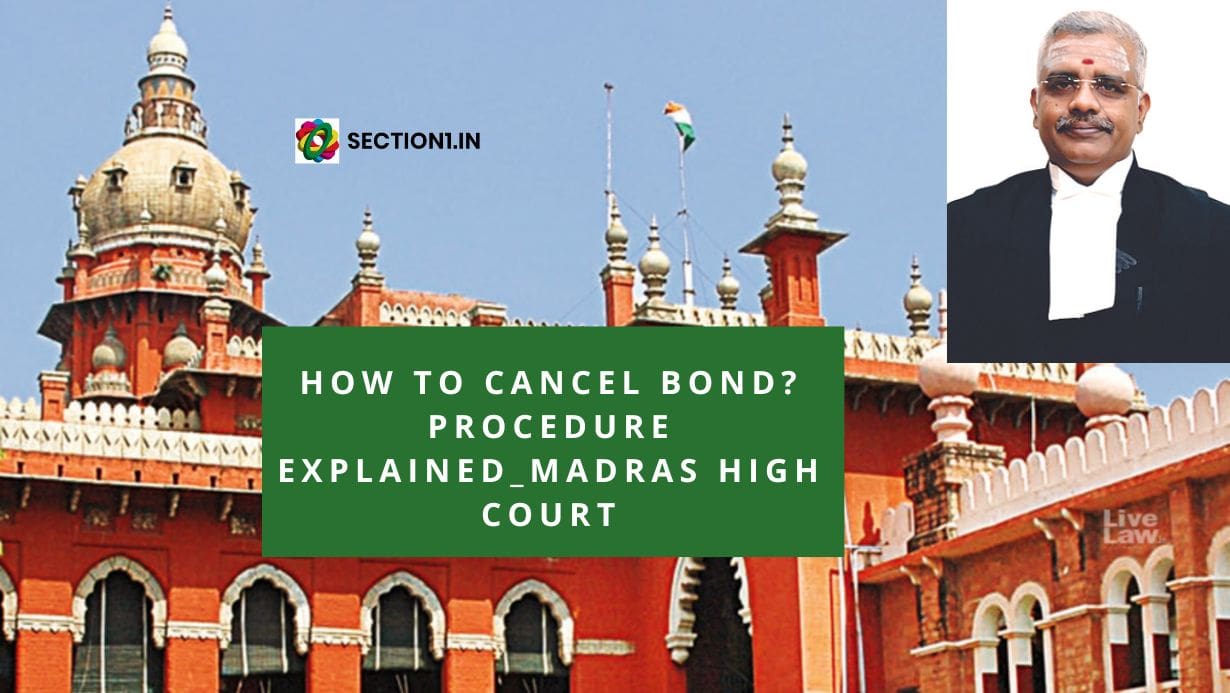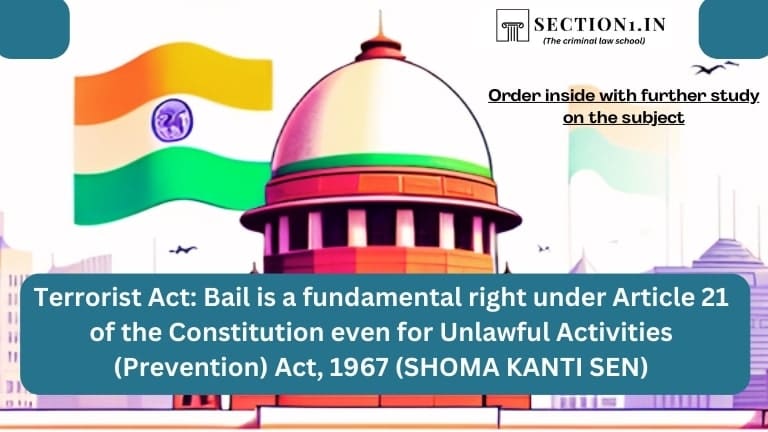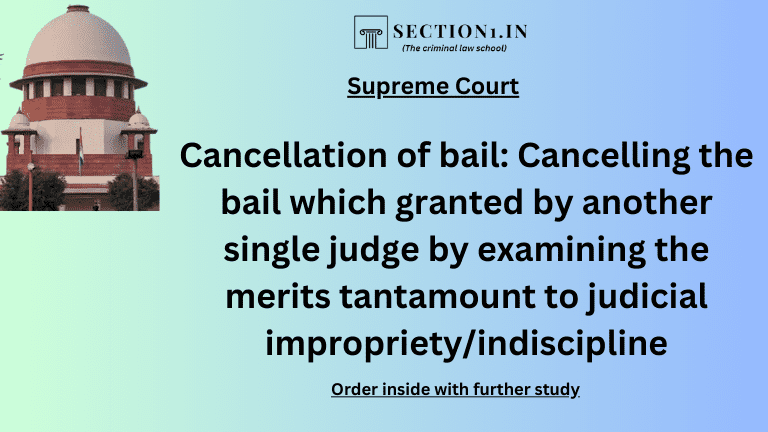8. This case raises an important and interesting question as to whether, a person who stood as a surety for an accused person, at the time when the accused person was released on bail, should continue to be a surety against his willingness on the ground that the accused person is absconding, and until he is secured, the surety will not be discharged?
xxx
PURPOSE OF DISCHARGING SURETY
10. A careful reading of the above provision shows that this provision establishes the procedure for the purpose of discharging a surety. The provisions of this Section is meant for the continuity of the surety bond and for enabling the accused to offer other surety bonds. The extent to which a surety is bound by the surety bond, can be understood by reading the provisions under Section 446 of Cr.P.C, which deals with forfeiture of bond. The Section lays down the procedure as to how, a bond executed can be forfeited. The object of taking surety in a case, where an accused is released on bail, is for the purpose of ensuring the availability of an accused before the Court. Whenever the dates of trial are fixed, the surety shall be liable for the appearance of the accused in the Court for all hearings as may be fixed by the Court.
LIABILITY OF SURETY
11. The question is what is the liability of a surety, if in case the accused is not present before the Court during the hearings or the accused absconds. An answer is provided by the Hon’ble Supreme Court in the judgment in Mohammed Kunju And Another vs State Of Karnataka reported in [1999 8 SCC 660].
SECTION 446 – PROCEDURE TO FORFEIT THE BOND
12. From the above judgment, it is clear that a surety can be bound to the extent of the amount mentioned in the bond, by forfeiting the bond, as per the procedure contemplated under Section 446 of Cr.P.C, whenever an accused does not appear on the date fixed by the Court or he absconds. Therefore, whenever a Court finds that the accused person has absconded and a surety wants to get discharged, the concerned Court can resort to the procedure contemplated under Section 446 of Cr.P.C and forfeit the bond executed by the surety and recover the amount covered by the bond by way of a penalty, from the surety. Beyond this, a Court can never compel a person to be a surety against his willingness. Section 444 of Cr.P.C merely provides for the procedure for discharge of sureties and that procedure cannot be read to the extent that the surety will never be discharged, till the accused person is brought before the Court. Such a restricted reading of the provision will go against the right of the surety to get himself discharged and to bind him permanently as a surety, affects the very liberty of a person, which is guaranteed under Article 21 of the Constitution of India. Both the Courts below lost sight of this very important aspect.
13. It is also important to take note of the provisions of Section 446-A of Cr.P.C. …… This provision was included by an amendment in the year 1980, by Act 63 of 1980 in order to deal with the menace of jumping bail. This Court had an occasion to deal with this provision in detail in Pillappan @ Ravikumar vs State reported in [2018 (3) CTC 156].
14. The above judgment gives a clear picture, with regard to the scope of power given to a Court under Section 446-A of Cr.P.C. Even though, the above judgment deals more with the consequence of an accused person, who does not appear, after being granted bail [bailable or non bailable offence], it can be seen that this Court has observed in more than one place that the sureties will have to make good the bond amount and the Court is entitled to proceed under Section 446 of Cr.P.C against the sureties for this purpose.
SECTION 446-A – CANCELLATION OF BAIL BOND
15. If the Court below finds that the accused person has absconded and he is not appearing before the Court, rather than compelling the surety to continue, the Court below should have resorted to the cancellation of bail bond executed by the accused and proceeded further. As per the above judgment, the Magistrate should not have acted in such a helpless manner and should have straightaway resorted to Section 446-A Cr.P.C.
PARTY: Prakash vs Deepak Kumar – Crl.O.P Nos: 25382 & 25834 of 2018 – Delivered on: 26.11.2018.
https://www.mhc.tn.gov.in/judis/index.php/casestatus/viewpdf/425230






